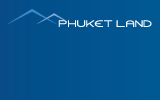Further Reading:
The Costs Involved in Purchasing a Property in Phuket

I am considering buying a property in Phuket. Can you outline to me all the costs, fees and taxes that I will face over and above the purchase price when buying and later selling a property?
In Thailand, as anywhere else in the world, there are costs incurred in buying , owning and later selling a property. Generally speaking these are not onerous, but while some of them are quite straightforward others are can be complex in structure or not quite as one might expect. It is valuable to get an understanding of these issues before purchasing a property.
Whenever a property is sold or leased several fees taxes and charges will apply to the transaction. Who pays them, the purchaser or the vendor is not always clear and remains largely a matter for negotiation. Whether you end up paying them or not, they are in the final reckoning a part of the total cost of the transaction. As such it is important when making a contract to purchase, that it is clearly specified who will be responsible for the various costs and when how they shall be calculated.
In simple terms, the costs of a sale can be broken down into four main
categories 1) transfer fees and duty stamps 2) income and business taxes
3) legal costs and 4) agents commissions.
Transfer fees for sale of a property are 2%, (reduced to 1% if a lease rather than sale is being registered) and Stamp Duty is 0.5%. These costs, payable at the land office at the point of registration, are calculated upon the higher of the declared sale value or the land offices "minimum assessed value" as determined by an official table of such values (which is updated every 5 years or so). In this regard it is important to note that while it is not strictly speaking legal to under-declare a sale transaction price for registration purpose, the practice is almost universal, so much so, that land office officials will invariably help sellers determine an appropriate declaration value.
Income Tax (as distinct from capital gains tax - which does not exist in Thailand) will be applied against all property sales and like the transfer fees and stamp duty, this must also be paid at the time of registration. The income accrued to a sale is determined by an official table of values expressing the assumed income as a percentage of sale value.
The longer you have owned the property, the greater the percentage of the sale value is determined as income. This income may then be apportioned for the number of years that the property has been owned and then fed back into the personal income tax rates (a progressive rate ranging from 5% - for the first 100,000 up to 37% - for amounts over 4,000,000). For most residential properties this will, when computed, work out to be in the order of 1% to 5% of declared value. Only properties of exceptionally high value owned for 8 years or more are likely to be assessed more than this. In addition to Income Tax, Business Tax at the rate of 3.3% will be assessed any private sale made within 5 years of the date of purchase.
Legal Fees will vary with the type of sale being transacted. There is no legal requirement for a lawyer to be used to register a sale or lease. A purchase (between two Thai parties - or even a foreigner buying a condo within the 40% foreign allowance) is in fact a very simple contract and can be concluded by two (knowledgeable) parties without a lawyer. However if you are unfamiliar with the law and certainly if you are registering a lease rather than a sale, it is very important that you use the services of an experienced and qualified lawyer to draft the contracts. Depending on the complexity of the contract, the consultation time required the lawyer selected (some international law firms in Bangkok charge as much or more than top firms in London, New York or Hong Kong - while local lawyers can have quite modest fees) and whether the lawyer will be handling the registration at the land office (as well as the contract work) fees could run anywhere from 15,000 to 100,000 Baht.
Sales commission (if a real estate agent is involved) will in almost every instance be paid by the vendor - fees will vary with the value of the property being sold and the marketing techniques to be employed by the agent - but are likely to fall in the 3 to 5% range for single residential properties. Although the practice is dying out, it is worthy of note that some (mainly freelance agents) want to work with a fixed offer price from the vendor and then sell on at whatever price they can negotiate with a buyer and others assess a fee to both the buyer and the vendor.
The above summary has due to it’s limited length only covered the basic principles. These are important and potentially expensive issues if handled the wrong way, which if they are to be optimized for a buyer , need to be reviewed on a property by property basis in consultation with a professional consultant or other knowledgeable party.


